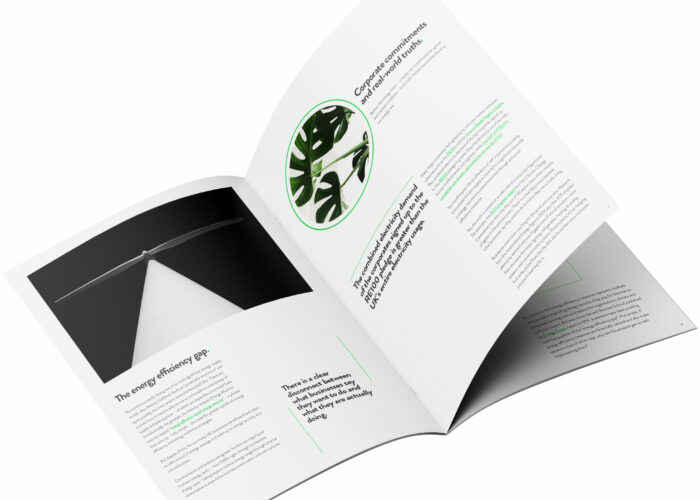On the 6th of April, it became law for certain large businesses in the UK to disclose their climate-related risks and opportunities, in line with Taskforce on Climate-related Financial Disclosures (TCFD) recommendations. We’ve created a quick guide to help you understand the new reporting rules, and what they mean for your business.
What is the Task Force on Climate-related Financial Disclosures (TCFD)?
Launched at the Paris COP21 in 2015, the Task Force on Climate-related Financial Disclosures (TCFD) provides a framework that can be used by companies, banks and investors to disclose climate-related risks and opportunities. The aim of the initiative is to increase consistency in reporting of climate-related financial information, guide companies on how to inform stakeholders on their climate action plans and enhance market transparency.
When did TCFD-aligned reporting become enshrined in law?
According to the latest annual status report 2,600 organisations around the world have voluntarily adopted the TCFD reporting framework.
In October 2021, the UK Government announced that it would be the first G20 country to make it mandatory for large businesses to report in line with TCFD recommendations. This came into force on 6th April 2022 and applies to accounting periods starting on or after this date.
The UK Government decision forms part of its strategy to make its financial system the greenest in the world and help organisations harness opportunities as part of the transition to net zero.
Which companies are affected by the changes?
Mandatory reporting applies to more than 1,300 of the largest UK-registered companies, financial institutions and insurers, as well as UK-based AIM companies (with more than 500 employees), LLPs (with 500 or more employees and a turnover of more than £500 million), and non-listed companies (with 500 employees or more and a turnover of more than £500 million).
Why is TCFD-aligned reporting important?
In making TCFD-aligned reporting mandatory, the UK Government aims to improve the quality and quantity of climate-related reporting, particularly amongst businesses which have a significant environmental impact. Doing so will help investors understand their financial exposure to climate risks.
Its aim is also to give companies a greater understanding of the risks and opportunities they face from climate change. It is hoped that enhanced reporting will encourage them to set out carbon reduction plans and enhance their sustainability credentials.
What needs to be disclosed?
Under the framework published by TCFD, there are four key pillars to helping companies disclose climate related risks and opportunities: Governance, Strategy, Risk Management and Metrics and Targets.
These areas include 11 recommendations that range from describing the board’s governance of climate-related risks and opportunities and how climate risks and opportunities are identified, assessed and managed to disclosing the key performance indicators used to assess the risks and opportunities in line with the organisation’s strategy and risk management process.
What does it mean for me?
If your company is in scope of mandatory TCFD-aligned reporting, climate-related disclosures will need to be included within annual reports for the accounting period starting on or after April 6 2022.
For organisations not currently within scope, we’re set to see even more ambitious corporate disclosure requirements on the way too, as the government’s Greening Finance Roadmap explains. This will include a requirement for certain firms to publish net zero transition plans.
Other blogs you may be interested in.
To find out how Capitas can work with you, drop us a line here.




